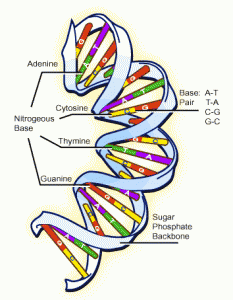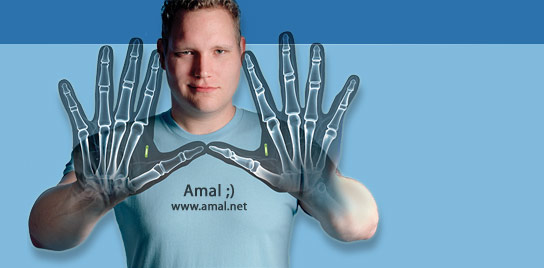 The concept of reading a person like a barcode is not a new one, it has come up constantly for me every time I deal with people calling me “Satan’s Mouthpiece” (yes, I got emails calling me that). But the difference between my RFID implants and a generic DNA reader that can cheaply, quickly, and accurately ID a person based on their DNA sequence is; private vs public use.
The concept of reading a person like a barcode is not a new one, it has come up constantly for me every time I deal with people calling me “Satan’s Mouthpiece” (yes, I got emails calling me that). But the difference between my RFID implants and a generic DNA reader that can cheaply, quickly, and accurately ID a person based on their DNA sequence is; private vs public use.
By that I mean my implants and are private, only used in my personal private projects. By their very nature, obtaining the ID number stored on my implant would be useless to 99.9999999% of the population. It would just be a meaningless number that wouldn’t amount to anything outside the bounds of the 1/2 acre chunk of dirt I call home. Inversely, VeriChip’s RFID implants and RFID enabled credit cards are public use, meaning if I was able to skim a CC number off someone, regardless of who they were or if I knew them, I could easily go to a lot of places and use that information for nefarious purposes. Imagine what I could do with your DNA sequence when it is very easy to get from you and it is linked to everything from buying stuff to medical care to crime scene investigation.
Finding a cheap, easy, and accurate way to sequence DNA is the new holy grail for both medical research industries and the identification industry. It now looks like IBM is hot on that path.
Being able to quickly sequence human DNA for $100-$1000 (vs the $3 billion it cost to sequence the first genome) means any random person could afford to have it done, or perhaps even one day be able to afford their own personal DNA reader and do it themselves.
I think the evolution of genome sequencing is akin to the evolution of the computer industry. A few short years ago we were at a place where getting DNA sequenced was like when computers filled entire buildings and were very costly to operate. Now we are in the “mainframe era” of DNA sequencing, where costs have dropped dramatically but the machines are still really only operated by select people and samples are submitted for processing. I think it will soon be the “PC era”, where DNA sequencing technology will be so cheap and easy that, if you wanted to plunk down a few grand you could have your own sequencer. Perhaps in 10 years, DNA sequencing technology will get so cheap, every cell phone and turnstile will have a sequencer built in.
Perhaps it won’t get to that point. Perhaps the relative ease with which one person can obtain another person’s DNA will bar it from becoming the defacto standard of human identification beyond police and medical records. I mean, you can already send off a digital DNA sequence file to a lab and they will send you back a large synthesized sample. I can’t imagine it would be that difficult to subvert the technology and spoof your DNA ID.
I wonder if being able to easily sequence someone’s DNA without them knowing, then easily getting it synthesized into large quantities would invalidate trust in DNA evidence gathered from crime scenes? Hmm, looks like someone’s already trying to cover that angle.
Tags: biometrics, culture, health, privacy, security












